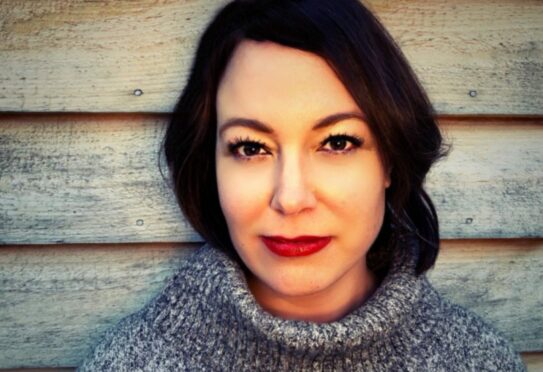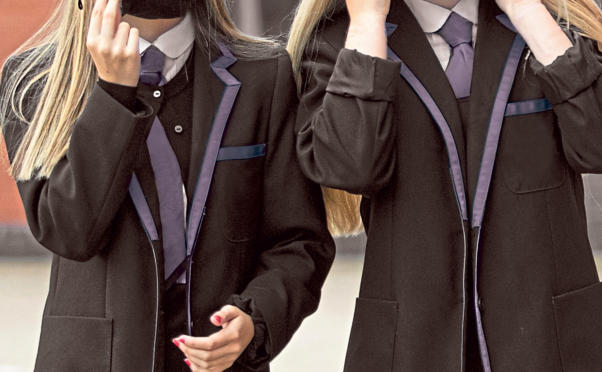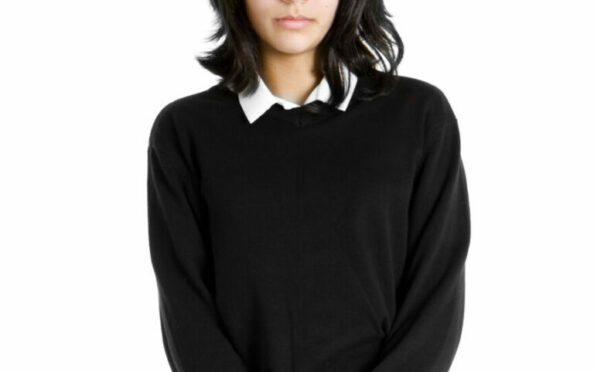
Schoolchildren and their teachers in Scotland must be taught about pornography to combat sexism and misogyny, according to a leading expert.
Professor Megan Maas believes lessons to curb the influence of adult material on young minds would help cut an epidemic of sexual harassment in schools.
Everyone’s Invited, a platform campaigning against “rape culture” that encourages survivors of sexual assault and harassment to post anonymous testimonies, received accounts of sexual harassment from youngsters in 466 primary and secondary schools, up 361 from 105 in 2021.
Adolescent sexuality expert Maas, of Michigan State University, has urged policy-makers in Scotland to consider adopting her classroom programmes, which show how popular culture and pornography shape behaviour towards sexual misconduct in schools.
She said: “The goal is for participants to become critical consumers of pornography instead of passive viewers.
“When it comes to staff, the goal is to increase awareness of the changes in pornography so educators can better understand students’ lives.
“Given that pornography is a default sex educator in the absence of sex education, many young people are getting the wrong idea about what sexual experiences should be like.”
A survey commissioned by The Sunday Post in December as part of our Respect campaign discovered one in five teenage girls had been sexually assaulted and three out of five endured some form of harassment. The abuse suffered by girls and young women prompted calls for urgent action to transform how children are taught about relationships and sex and to curb access to online pornography.
Almost 70% of the girls and young women interviewed did not believe the scale of the crisis is understood while nearly 80% said more must be done to curb harassment.
As pornography becomes more prevalent and the issue of sexual harassment in schools attracts more attention, pornography education provides a tool to prevent sexual violence, according to Maas. Her PopPorn programme has four modules for pupils covering pop culture and the history of pornography, gender differences in how teens learn about sex and relationships and research on porn use.
She said: “We’d be happy to do training with school staff in Scotland. I think the programme would translate well to Scottish culture. Although this study publishes our findings with school staff, we also do these trainings with teens themselves and with parents.”
Sandy Brindley, chief executive of Rape Crisis Scotland, agreed that sexual harassment continues to be a major problem for pupils across Scotland.
She said: “A study conducted by Glasgow University in schools involved in our Equally Safe At School programme pilot found two thirds of students in those schools had experienced some form of sexual harassment in the previous six months.
“Sexual harassment has a very negative effect, with pupils reporting feeling ashamed, embarrassed and afraid.
“In some cases, experiences of sexual harassment can have very harmful impacts on young people’s mental health.
“Despite these harmful effects, we also know that young people are not always confident in naming sexual harassment, particularly when it involves behaviours which have become normalised or trivialised.
“They don’t always feel able to challenge these behaviours or talk to school staff about them – and school staff themselves can also struggle to identify these behaviours and to challenge them appropriately.
“We continue to work extensively with schools to tackle these issues. Our Equally Safe At School programme now works with around 200 secondary schools to deliver evidence-based workshops to young people on identifying and preventing sexual harassment, and accessing support. We also provide tools and resources, including training and policies, to support staff teams in achieving this cultural change.
“Many schools are already working hard to address these issues, but it is vital that all schools engage with the problem of sexual harassment to ensure that young people feel fully safe at school and in their everyday lives.”
The Scottish Government said: “There is absolutely no place for harassment or abuse in schools or anywhere else. We continue to take forward actions in schools to address gender-based violence and sexual harassment and we are developing a national framework for schools to help tackle these issues.
“As part of relationships, sexual health and parenthood education, secondary school pupils learn about the damaging and exploitative aspects of pornography and how it can negatively affect mental health and healthy relationships.”

Enjoy the convenience of having The Sunday Post delivered as a digital ePaper straight to your smartphone, tablet or computer.
Subscribe for only £5.49 a month and enjoy all the benefits of the printed paper as a digital replica.
Subscribe

